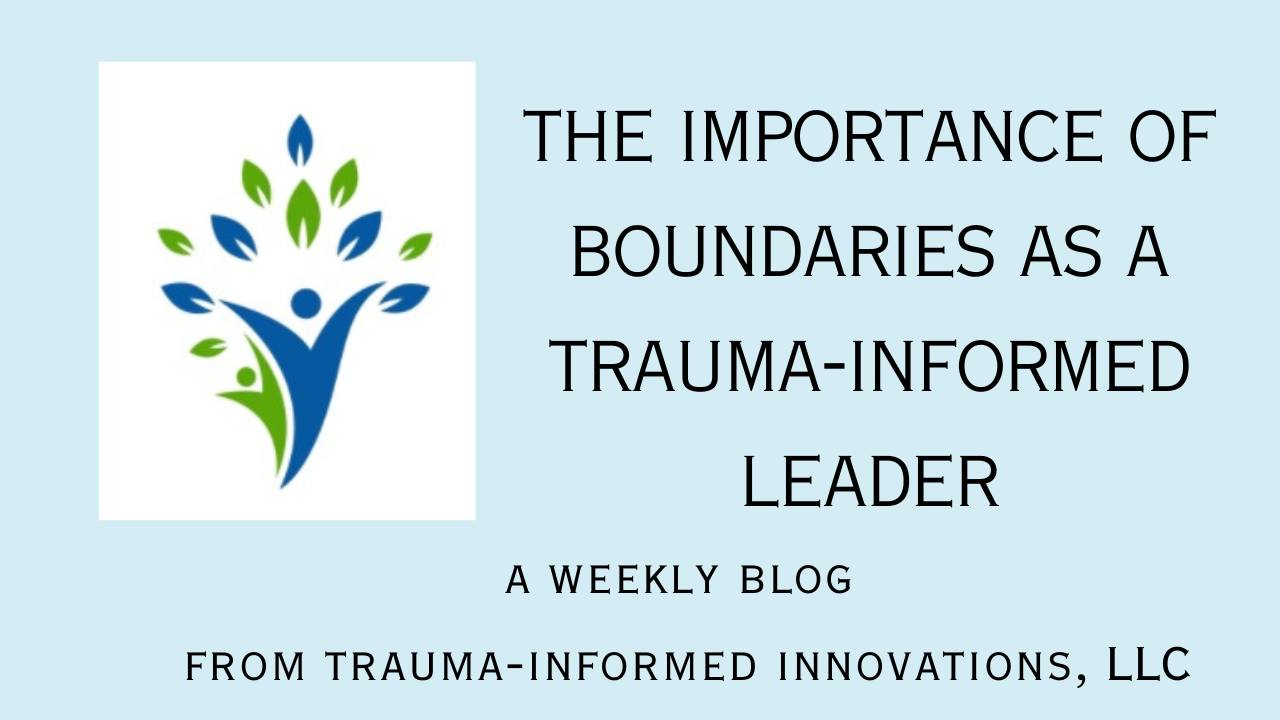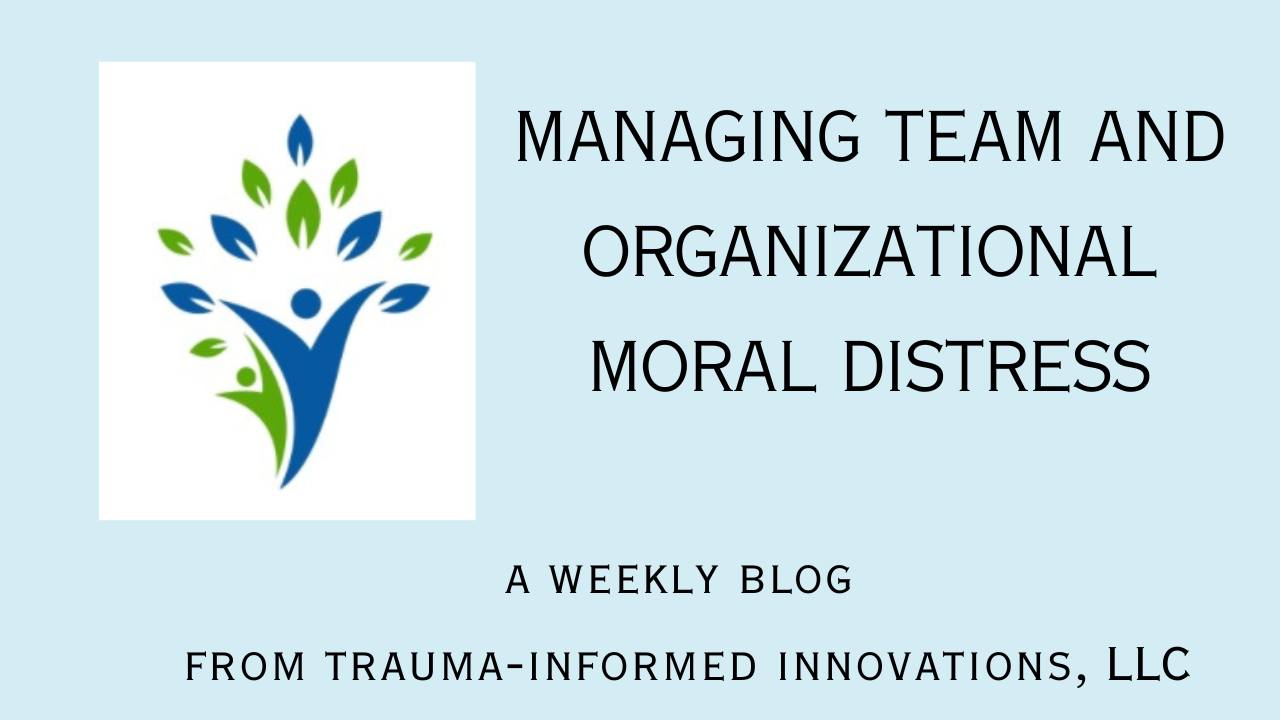Navigating Your Own Moral Distress: A Guide for Trauma-Informed Leaders
Last week, I talked about moral distress—the deep discomfort and inner conflict that arises when we can’t act in alignment with our values because of external pressures. As a trauma-informed leader, I know how frequently this happens in today’s ever-changing world. Whether it’s due to administrative policies, ethical dilemmas, or political pressures, navigating these challenges can be incredibly difficult. This week, I want to share concrete strategies that have helped me manage moral distress, maintain my emotional and mental well-being, and continue leading with integrity. Next week, I’ll focus on how you can help your team members manage their own moral distress.
Understanding Moral Distress as a Trauma-Informed Leader
Moral distress is an emotional and physiological response to situations where our professional responsibilities conflict with our ethical beliefs. It’s especially challenging for trauma-informed leaders because we hold space for others who have experienced pain, trauma, and injustice. I’ve been stuck between doing what I know is right and meeting professional expectations, unsure of how to move forward. I’ve learned that this distress isn’t a personal failure—it’s a normal response to a complex situation. Acknowledging it is the first step toward finding a way through it.
Moral distress often results in emotional exhaustion, decision fatigue, and self-doubt. For many leaders, it can also lead to physical symptoms such as chronic stress, tension headaches, and disrupted sleep. Recognizing these signs early can help prevent burnout and long-term emotional depletion. When I experience moral distress, I try to tune into my body’s signals, noticing when stress manifests physically and mentally. This allows me to be proactive in addressing my well-being before I reach a breaking point.
Strategies for Managing Moral Distress
Moral distress activates the body’s stress response system, making it harder to think clearly or make decisions. Over time, I’ve discovered strategies that help me regulate my emotions and stay grounded so I can navigate difficult situations more effectively. Here’s what has worked for me:
1. Self-Awareness and Reflection
The first step in managing moral distress is recognizing and naming it. I ask myself: Where is this distress coming from? What values do I feel are being compromised? What expectations—whether from leadership, my team, or external pressures—are in conflict with those values? Writing these down often helps me gain clarity.
I also revisit my core values. When I feel overwhelmed, I remind myself why I chose this path in the first place. My personal values—fairness, kindness, justice, and authenticity—are my compass. Reaffirming them gives me a clearer sense of direction in difficult moments.
Breaking this process down into concrete steps has been helpful for me:
-
List my core values.
-
Identify the external demands placed on me.
-
Pinpoint which values feel compromised by these demands.
-
Reflect on ways to align my actions with my values while meeting my professional responsibilities.
2. Find Supportive Communities
Being in a space with people who share my values has been a game-changer. Whether through professional networks, advocacy groups, or friendships, having open, honest conversations about my experiences helps me feel less alone.
I’ve also realized that the goal isn’t necessarily to solve the moral conflict itself (because that may not be possible under the current circumstances)—it’s to ease my distress so I can approach the situation with more clarity and confidence. Connecting with like-minded people energizes me, giving me the resilience I need to navigate these challenges.
3. Manage Stress
I know self-care is important, but when I’m overwhelmed, it’s easy to neglect it. That’s why I focus on small, manageable actions that help me feel more grounded. Lighting a candle, taking a long bath, or going for a walk outside are simple but powerful ways I regulate my emotions.
I’ve also had to set boundaries around news and social media. Staying informed matters, but doomscrolling only fuels my distress. I use tools that remind me when I’ve spent too much time online, helping me maintain a healthier balance.
I also practice mindfulness techniques such as deep breathing exercises, progressive muscle relaxation, and short guided meditations to reduce my body’s stress response. Even taking five minutes to focus on my breath can shift my mindset and calm my nervous system. I love the “Calm” and “Headspace” apps for this.
4. Reframe the Situation
When I’m in the middle of a moral dilemma, I remind myself that I don’t have to fix everything at once. Focusing on small, concrete actions—having a tough but necessary conversation, pushing for incremental policy changes, or mentoring someone who shares my values—helps me feel a sense of purpose.
I also challenge perfectionism. I don’t need to have all the answers today. Change takes time, and even small steps forward are meaningful. I’ve learned to celebrate progress instead of focusing on what I haven’t yet achieved.
5. Develop Emotional Resilience
Moral distress can bring up intense emotions—anger, guilt, frustration. I used to suppress them because I was afraid that if I felt them, it would be overwhelming, but I’ve learned that acknowledging and processing them is healthier. Sometimes, journaling or speaking to a trusted confidant helps. Other times, I need a break from it all to reset my mind.
I practice self-compassion by reminding myself that I am human and doing the best I can with the resources I have. Learning to be kind to myself and treating myself like a dear friend during difficult moments has been transformative.
6. Engage in Constructive Advocacy
Instead of feeling like I need to take on everything at once, I focus on where I can make the most impact. Whether that’s writing, speaking out, supporting a cause, or mentoring others, I remind myself that every action—no matter how small—contributes to meaningful change.
When working within organizations where moral distress is common, I’ve found that advocating for policy changes and fostering open discussions can make a difference, even if the progress is slow.
7. Seek Professional Guidance
Therapy has been one of the most valuable tools in my journey. Having a space to talk through my experiences and gain coping strategies has helped me manage my emotions and clarify my decision-making process. I also lean on mentors and ethics advisors when I need guidance.
8. Practice Compassion and Forgiveness
I remind myself that I’m doing the best I can with what I know. For example, when I had to make a tough decision about implementing a policy that felt misaligned with my values during the COVID-19 pandemic, I took time to reflect, sought advice from mentors, and did what I believed was the most ethical option given the constraints. I practice self-compassion and acknowledge that I’m not alone in this struggle. Many others are also trying to navigate this complex world with integrity, just as I did in that moment.
Affirmations for Maintaining Integrity and Inner Peace
Affirmations have been a powerful tool for me. Here are some that help me stay grounded:
-
"I am aligned with my values, even in challenging times."
-
"I trust in my ability to make ethical decisions, even when it’s difficult."
-
"I am doing the best I can with the knowledge and resources available to me."
-
"It’s okay to not have all the answers right now. I trust the process of reflection and growth."
-
"I am at peace with my boundaries. It’s okay to protect my energy and well-being."
-
"I cannot control everything, but I can control how I respond."
-
"I choose to focus on what I can change and release what I cannot control."
-
"I acknowledge my feelings without judgment and allow myself to process them."
-
"I am not alone in my struggles; together, we can make a difference."
-
"My emotional well-being is important, and I deserve to take breaks when needed."
How to Use These Affirmations
-
Start the day with one affirmation: Choose an affirmation that resonates with how you feel and use it as a reminder for the day ahead.
-
Repeat as needed: When feeling overwhelmed, pause and repeat your chosen affirmation, either silently or aloud.
-
Integrate into journaling or meditation: Reflect on the affirmation by journaling or using it as a focal point during meditation, allowing for deeper self-awareness and peace.
I repeat these affirmations when I feel overwhelmed, incorporate them into journaling, or use them as meditation focal points.
Moving Forward
Moral distress can feel overwhelming, but I’ve learned that I don’t have to navigate it alone. By staying self-aware, leaning on my community, and practicing self-compassion, I can move through these challenges while staying true to my values.
Next week, I’ll dive deeper into how you can support your team in navigating their own moral distress. Because fostering a supportive and resilient workplace starts with us, but it doesn’t end there.



Responses